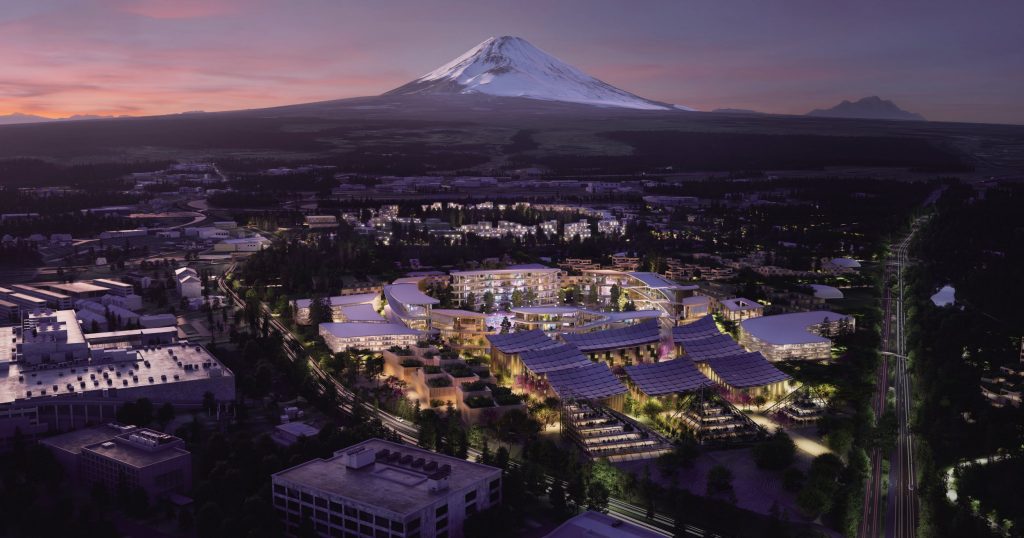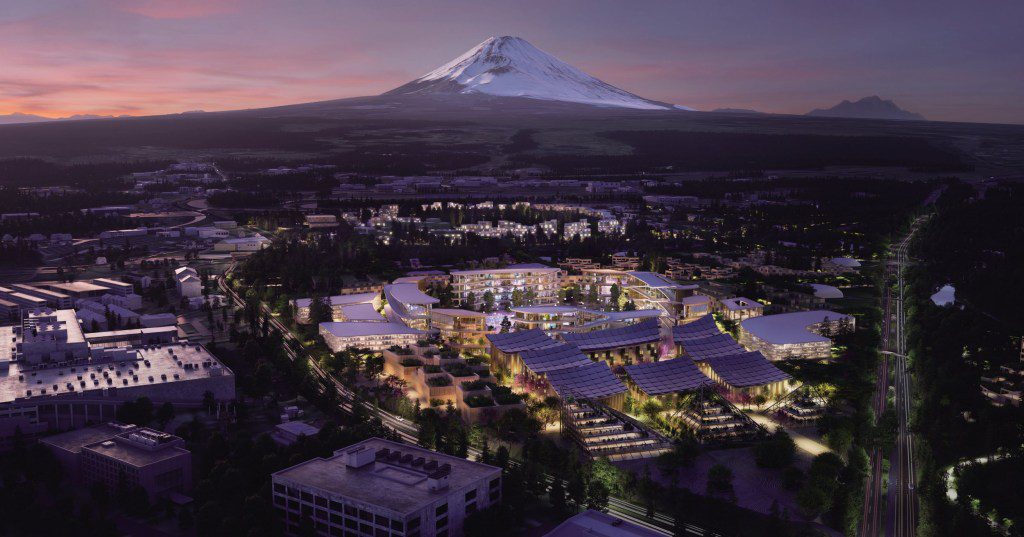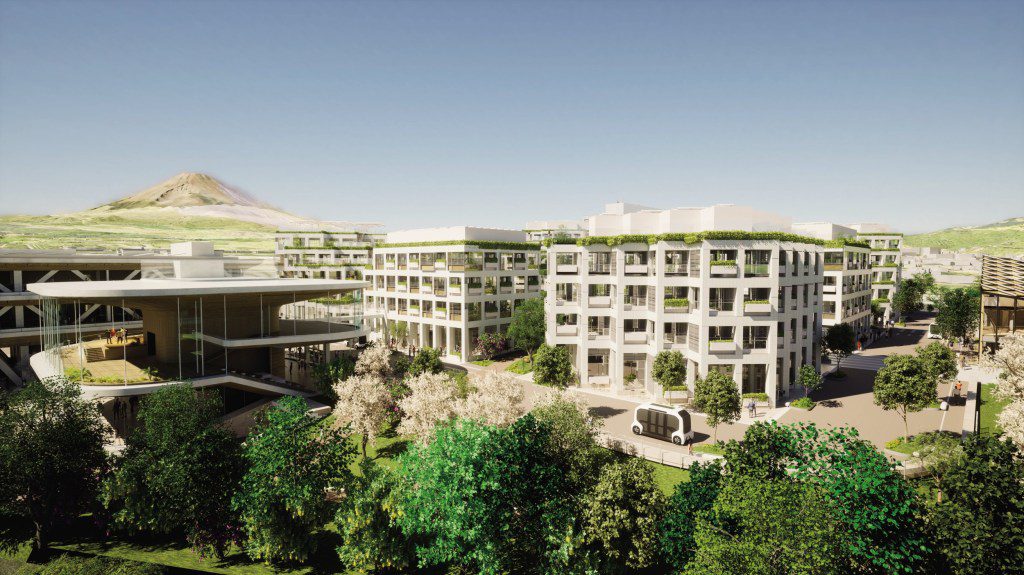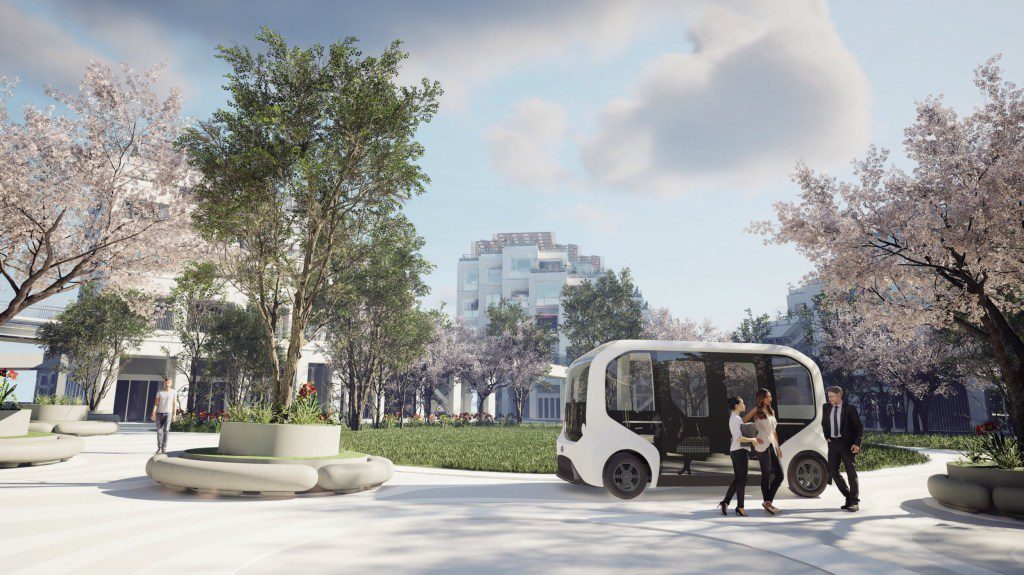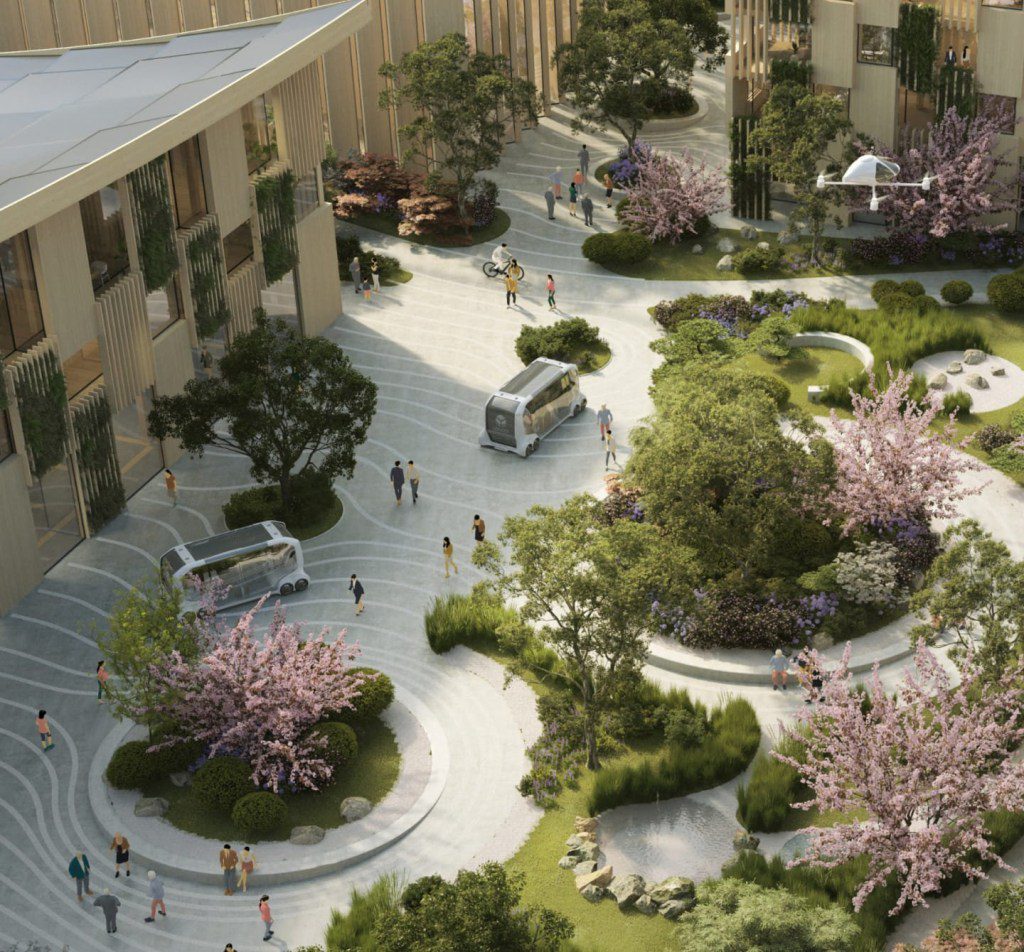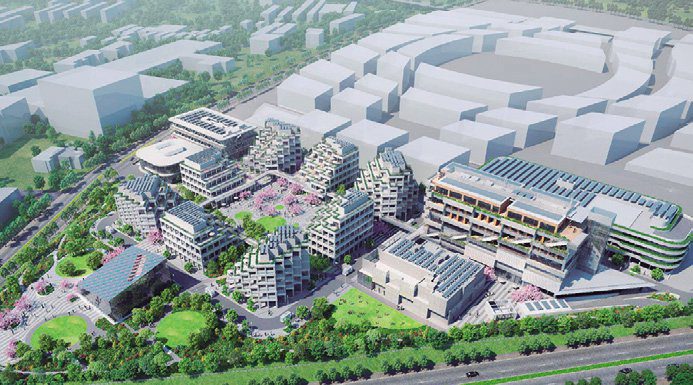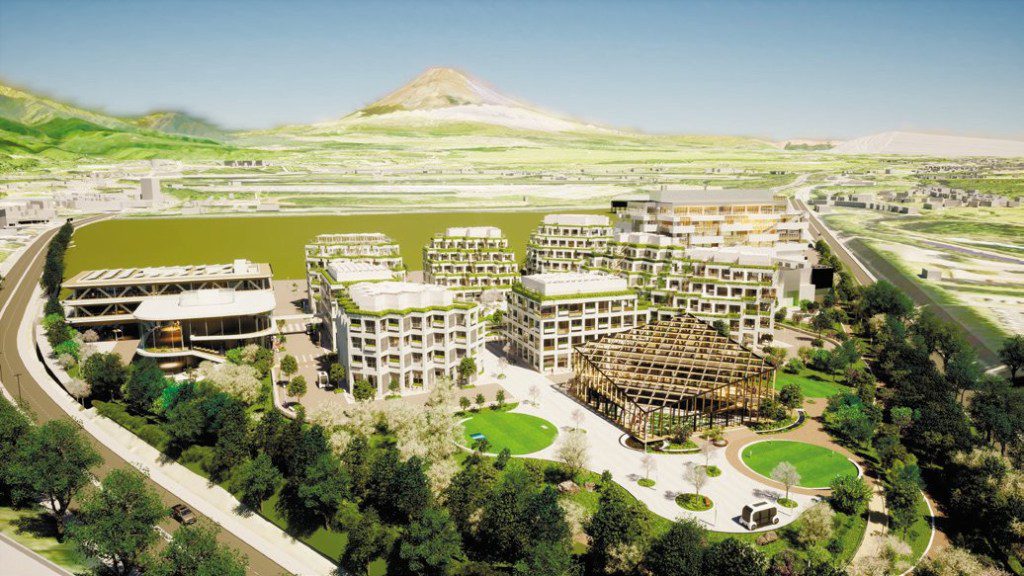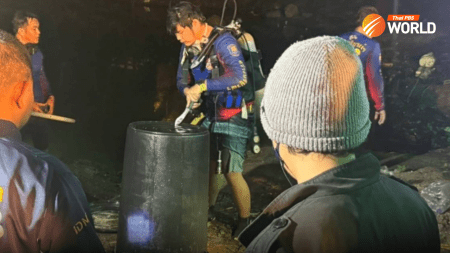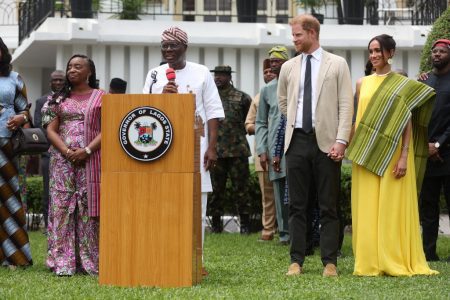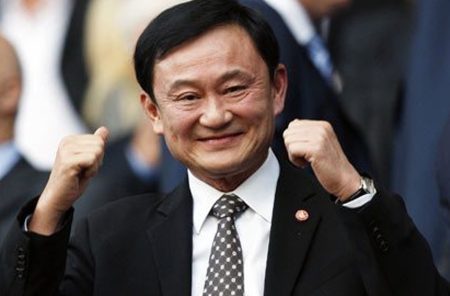Ambitious plans to construct an ideal sustainable city next to an active Japanese volcano are progressing well.
Initially announced in 2021, Toyota has been diligently building their Woven City near Mount Fuji on Honshū island, with the first of 2,000 expected residents set to move in by the end of the year.
The news of the upcoming completion of the project follows the sharing of progress photos on Saudi Arabia's huge 'mirror city' project, The Line, but there are many large cities being built right now worldwide.
Known as a 'large human test', Woven City will serve as a 'living laboratory' for Toyota to test models of their renewable and energy-efficient self-driving vehicles, called 'E-palettes'.
The car company expects to collect data from the use of these driverless vehicles, guided by sensors in lights, buildings, and roads throughout the city.
This will help them gain a better understanding of traffic patterns for both vehicles and pedestrians.
Woven City is also set to include 'smart homes' that run mostly on hydrogen, reducing emissions to make the futuristic living space, with its large cost of £7.8 billion, as sustainable and eco-friendly as possible.
Akio Toyoda, Toyota's president, has said: 'Constructing a complete city from scratch, even on a small scale like this, is a unique chance to develop future technologies, including a digital operating system for the city's infrastructure.
‘With people, buildings and vehicles all connected and communicating with each other through data and sensors, we will be able to test connected AI technology in both virtual and the physical realms, maximising its potential.'
In addition to this advanced tech, most of the buildings in the city will be constructed in traditional Japanese style out of wood.
Even these traditional methods will be carried out by robots specifically programmed to perform the strenuous labor.
.





